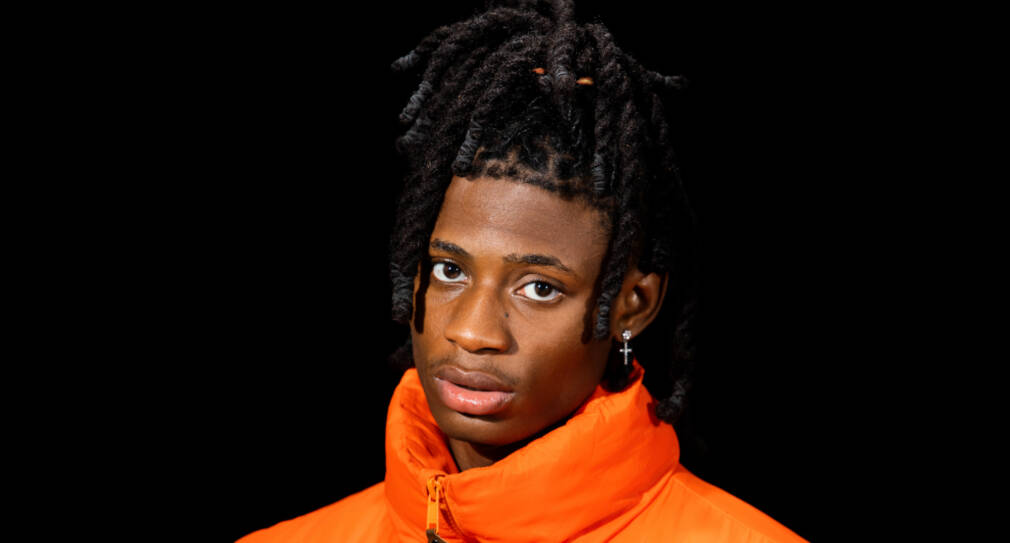Earlier this year, the Nigerian music scene was introduced to a 17-year-old artist whose music and aesthetics signify a wave of uniqueness and vigor. Khaid’s sonic palette encapsulates a blend of Afrobeats, trap, pop, and Amapiano. His signing to Neville Records, helmed by Nigerian internet sensation Sydney Talker, was buoyed by his penchant for trap freestyle. Growing up in the streets of Ojo, Lagos; he cites Polo G, Rema, Juice WRLD as his musical influences, “making my kind of music in a place like Ojo cost me opportunities to perform at concerts,” he says. This would see him nurse the idea of ditching trap completely before now.
His debut single “With You”, a record inspired by love and loss, has since racked up over 10 million streams across DSPs. Speaking on “Ski”, the follow-up single, he mentions, “putting my past life into Trap-lines is a gift and I want everyone to feel it because it’s real”. The rapper has gone a step further releasing his debut project Diversity, a six-track release that recounts Khaid’s encounter with love, heartbreak, and his past life.
In this piece, Khaid speaks with PAM about wielding his back-story, trap in Nigeria, and his motivations.
You started the year as a regular guy and now you’re Khaid. Tell me about who you used to be before now.
Basically, Khaid was this kid with a strong passion for music. I grew up in the streets of Ojo, where I used to be a mechanic. Looking at my life now, it feels like a dream being here.
A mechanic…?
Yeah. Music was shaky for me, so I started the mechanic apprenticeship as a backup.

How did your passion for music come about?
I started singing other people’s songs at a very tender age. I was used to rap songs and some Micheal Jackson music, which developed my melodic part. My mom listened to a lot of foreign music, especially Micheal Jackson while my dad loved Fuji. My passion for music stemmed from the uniqueness of both worlds.
Did you pick up other artists as you grew?
Definitely. Polo G influenced me the most. Juice WRLD, XXXtentacion, NBA Youngboy, etc. I got to points where I knew what I wanted to sound like and how to mix a part of my past and present to get something unique. I also picked up some Fela because my dad played it very well too.

What is it like being from Ojo and making your style of music?
It wasn’t the easiest because it’s hard to see my kind of music resonate in such a place. It took determination and the need to set a bar for myself. I knew I’ll have to do something different to cut through the noise, despite how unwelcoming it could be.
So, you also took to social media…
Yes, that was important as I thought it’s a way to attract potential investors. At the time, I made pure street music but sometimes, I’m inclined to make trap freestyles just to flex my muscles and be real with myself. It was one of the [Trap] freestyles that eventually caught the attention of Neville Records.
Were you, at any point, conflicted between making street music and trap?
Yes, almost every time. I wasn’t getting opportunities to perform at concerts in Ojo because of the kind of music I made. I’d wanted to drop trap for this reason but thanks to the positive-minded people around they encouraged me to keep going.
Tell me about “Ski”, your last single before the project.
“Ski” gave me an opportunity to express my feelings in a different genre of music. At the time of writing that record, I was reminiscing about my former days, so I had to put my past life into Trap lines for anyone to feel what I was saying. I wanted the melodies to resonate with people, that’s why I filled the lyrics with real happenings.
Tell me about Diversity; dropping just months after your debut single.
The project brings out sounds that haven’t been explored as much in these parts while maintaining some Nigerian elements. The main reason for the project is to convey the different parts of me into one project. One should expect versatility while listening to it.
What was it like putting the entire project together?
That project took two years to come up with. We recorded three times because we wanted the best and some sounds were not following the sonic direction we wanted. If you’re doing something different, it certainly has to be exceptional. We had to re-record several times and do some major and minor tweaks until we got the actual sound. Instead of being stressful, it’s actually one of the most fun things I’ve done.
Out of the six songs in the project, do you have a bias towards any?
Definitely “Akpako”, because that’s how I lived before getting to this point. I just had to put it in a song.
What does singing about your past mean to you?
While we have to do what we have to do, what is real will prosper. Relaying my back story through my music is some gift, so it’s in between doing what I have to do and being real with myself and my motivations.

While you went solo on this project, what dream collaboration would you want for yourself?
I’ll love one with Made Kuti, Rema, Ruger, Blaqbonez, Wizkid, etc.
Interesting mix! You’re also known for making good fashion statements. How relevant is that to your brand?
It’s always been important to me because normal branding doesn’t fit the type of music I make, so I had to figure this out. It complements your offering as an artist.
What kind of outfit do you feel most comfortable in?
You’ll always see me smiling in puffer jackets and hoodies.
What other interests do you have outside music?
Fashion, of course. Then football and drawing.
Listen to Diversity.





